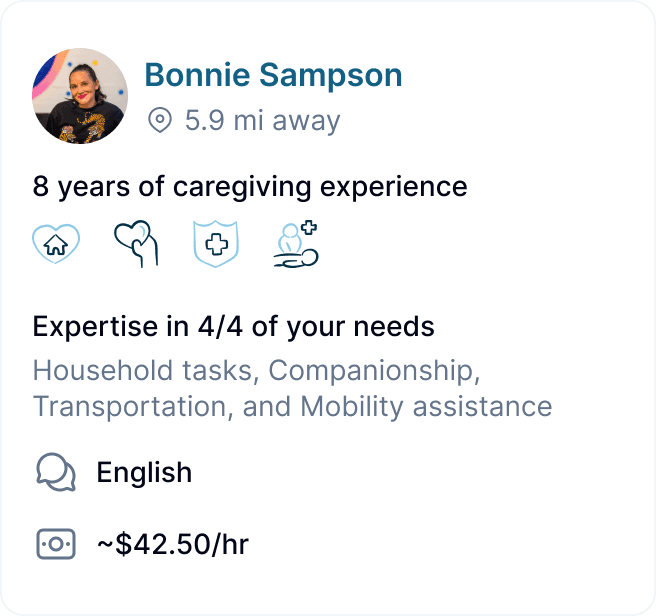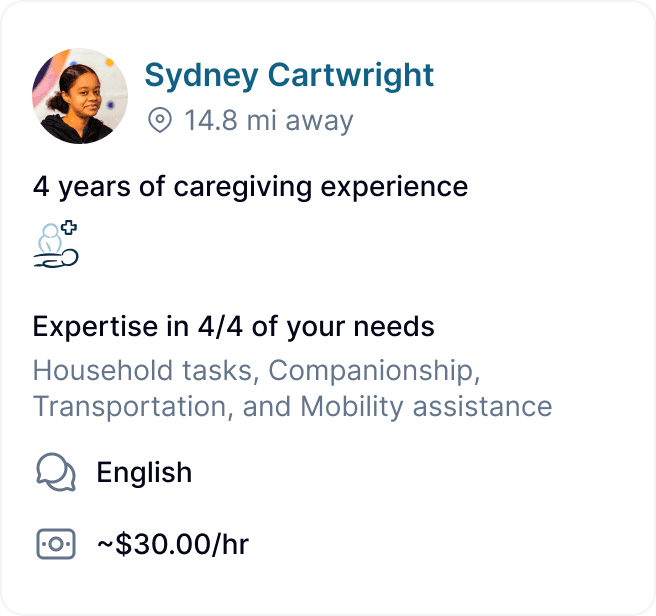Talking About Therapy: How to Normalize Mental Health Support with Aging Parents



Conversations about mental health can be tough at any age, but when it comes to talking with aging parents about therapy, the stakes—and the emotions—can feel especially high.
Many older adults grew up in a time when mental health wasn’t openly discussed, and seeking therapy was often stigmatized. Yet, as our loved ones age, their emotional well-being is just as important as their physical health. By opening up the conversation and normalizing support, you can help your parents enjoy a happier, healthier life in their golden years.
Why Mental Health Conversations Matter
Aging brings many changes—retirement, health challenges, the loss of friends or a spouse, and shifts in independence. These transitions can sometimes lead to feelings of sadness, anxiety, or isolation. Unfortunately, many seniors hesitate to talk about these struggles, believing they should simply “tough it out,” or fearing they’ll burden their families.
Ignoring mental health concerns doesn’t make them go away. In fact, untreated depression or anxiety can worsen physical health, reduce quality of life, and even increase the risk of chronic illness. That’s why it’s crucial to recognize the signs and create a safe space for honest conversation.
Recognizing When to Talk
Mental health challenges in older adults can look different from what you might expect. Watch for:
Withdrawal from social activities or hobbies
Changes in sleep or appetite
Persistent sadness or irritability
Forgetfulness or confusion
Neglect of personal care
If you notice these signs, it’s a good time to check in with your parent. Remember, these changes aren’t just “part of getting older”—they could signal that your parent is experiencing some mental health challenges.
How to Start the Conversation
Choose the Right Moment: Find a quiet, comfortable time when you won’t be interrupted. Avoid bringing up sensitive topics during stressful moments or family gatherings.
Lead with Empathy: Approach your parent with genuine care and concern. Use “I” statements to express what you’ve noticed, like, “I’ve noticed you seem a little down lately, and I’m worried about you.” This feels less accusatory and more supportive.
Normalize Mental Health: Remind your parent that everyone faces challenges, and seeking help is a sign of strength-not weakness. You might say, “Lots of people benefit from talking to someone when life feels overwhelming. It’s just like seeing a doctor for your physical health”.
Ask Open-Ended Questions: Encourage your parent to share their feelings. Instead of “Are you depressed?” try “How have you been feeling lately?” or “Is there anything on your mind you’d like to talk about?”.
Listen Without Judgment: Give your parent space to express themselves. Validate their feelings, even if you don’t fully understand. Phrases like, “That sounds really tough,” or “I can see why you’d feel that way,” can go a long way.
Addressing Stigma and Generational Attitudes
Many seniors grew up in an era when mental health was rarely discussed, and therapy was often misunderstood. You may encounter resistance, such as:
“I don’t need therapy.”
“People will think I’m crazy.”
“Talking about feelings won’t change anything.”
Acknowledge these feelings without dismissing them. Share that attitudes about mental health have changed, and that therapy is now a common, respected way to handle life’s challenges. Mention that even doctors now routinely check on emotional well-being as part of regular health visits.
Supporting Your Parent Beyond the Conversation
Be Patient: Change takes time, especially when confronting long-held beliefs. Your parent may need several conversations before they feel comfortable seeking support.
Encourage Social Connections: Loneliness can worsen mental health, so encourage your parent to stay engaged with friends, family, or community groups. Peer support groups can also help normalize talking about feelings—knowing that other seniors struggle with mental health difficulties can help them feel less alone in their struggles and help them overcome resistance to getting help.
Integrate Mental and Physical Health: Remind your parent that mental health is just as important as physical health. Encourage regular check-ups, and ask their doctor to include mental health screenings as part of their routine care. Other care staff, such as nurses and caregivers,
Leverage Professional Support: Sometimes, having a neutral third party—like a therapist, counselor, or primary care provider—can make all the difference. Depending on the situation, the right type of home care can be a valuable source of support for seniors. Many seniors struggle with isolation and loneliness, which are strongly related to poorer health outcomes, and this can be a significant source of stress for family members—especially those who may live far away from their loved one. Hiring in-home support, such as a private caregiver, can bring both social connection for seniors, as well as peace of mind for families.
Making Therapy Accessible and Appealing
Offer Options: Explain that therapy can take many forms—individual, group, or even virtual sessions. Some seniors may feel more comfortable starting with a support group or talking to a counselor online from the comfort of home.
Involve Them in the Process: Let your parent have a say in choosing a therapist or support group. Offer to help research options, but respect their preferences and pace.
Highlight the Benefits: Emphasize that therapy isn’t just for crises. It can help with grief, loneliness, adjusting to new life stages, or simply maintaining emotional balance.
Share Success Stories: If you or someone you know has benefited from therapy, share that experience. Sometimes, hearing about positive outcomes from a trusted source can help break down barriers.
Conclusion: Taking the First Step
Talking with your aging parents about therapy isn’t always easy, but it’s one of the most loving things you can do. By approaching the topic with empathy, patience, and openness, you can help break down the stigma and ensure your loved ones get the support they deserve.
At Clara Home Care, we help families in the Bay Area find more affordable home care by making it easy to directly employ a caregiver from our network of over 1,300 trusted professionals. Reach out to us today to learn how we can support your family's needs.
Conversations about mental health can be tough at any age, but when it comes to talking with aging parents about therapy, the stakes—and the emotions—can feel especially high.
Many older adults grew up in a time when mental health wasn’t openly discussed, and seeking therapy was often stigmatized. Yet, as our loved ones age, their emotional well-being is just as important as their physical health. By opening up the conversation and normalizing support, you can help your parents enjoy a happier, healthier life in their golden years.
Why Mental Health Conversations Matter
Aging brings many changes—retirement, health challenges, the loss of friends or a spouse, and shifts in independence. These transitions can sometimes lead to feelings of sadness, anxiety, or isolation. Unfortunately, many seniors hesitate to talk about these struggles, believing they should simply “tough it out,” or fearing they’ll burden their families.
Ignoring mental health concerns doesn’t make them go away. In fact, untreated depression or anxiety can worsen physical health, reduce quality of life, and even increase the risk of chronic illness. That’s why it’s crucial to recognize the signs and create a safe space for honest conversation.
Recognizing When to Talk
Mental health challenges in older adults can look different from what you might expect. Watch for:
Withdrawal from social activities or hobbies
Changes in sleep or appetite
Persistent sadness or irritability
Forgetfulness or confusion
Neglect of personal care
If you notice these signs, it’s a good time to check in with your parent. Remember, these changes aren’t just “part of getting older”—they could signal that your parent is experiencing some mental health challenges.
How to Start the Conversation
Choose the Right Moment: Find a quiet, comfortable time when you won’t be interrupted. Avoid bringing up sensitive topics during stressful moments or family gatherings.
Lead with Empathy: Approach your parent with genuine care and concern. Use “I” statements to express what you’ve noticed, like, “I’ve noticed you seem a little down lately, and I’m worried about you.” This feels less accusatory and more supportive.
Normalize Mental Health: Remind your parent that everyone faces challenges, and seeking help is a sign of strength-not weakness. You might say, “Lots of people benefit from talking to someone when life feels overwhelming. It’s just like seeing a doctor for your physical health”.
Ask Open-Ended Questions: Encourage your parent to share their feelings. Instead of “Are you depressed?” try “How have you been feeling lately?” or “Is there anything on your mind you’d like to talk about?”.
Listen Without Judgment: Give your parent space to express themselves. Validate their feelings, even if you don’t fully understand. Phrases like, “That sounds really tough,” or “I can see why you’d feel that way,” can go a long way.
Addressing Stigma and Generational Attitudes
Many seniors grew up in an era when mental health was rarely discussed, and therapy was often misunderstood. You may encounter resistance, such as:
“I don’t need therapy.”
“People will think I’m crazy.”
“Talking about feelings won’t change anything.”
Acknowledge these feelings without dismissing them. Share that attitudes about mental health have changed, and that therapy is now a common, respected way to handle life’s challenges. Mention that even doctors now routinely check on emotional well-being as part of regular health visits.
Supporting Your Parent Beyond the Conversation
Be Patient: Change takes time, especially when confronting long-held beliefs. Your parent may need several conversations before they feel comfortable seeking support.
Encourage Social Connections: Loneliness can worsen mental health, so encourage your parent to stay engaged with friends, family, or community groups. Peer support groups can also help normalize talking about feelings—knowing that other seniors struggle with mental health difficulties can help them feel less alone in their struggles and help them overcome resistance to getting help.
Integrate Mental and Physical Health: Remind your parent that mental health is just as important as physical health. Encourage regular check-ups, and ask their doctor to include mental health screenings as part of their routine care. Other care staff, such as nurses and caregivers,
Leverage Professional Support: Sometimes, having a neutral third party—like a therapist, counselor, or primary care provider—can make all the difference. Depending on the situation, the right type of home care can be a valuable source of support for seniors. Many seniors struggle with isolation and loneliness, which are strongly related to poorer health outcomes, and this can be a significant source of stress for family members—especially those who may live far away from their loved one. Hiring in-home support, such as a private caregiver, can bring both social connection for seniors, as well as peace of mind for families.
Making Therapy Accessible and Appealing
Offer Options: Explain that therapy can take many forms—individual, group, or even virtual sessions. Some seniors may feel more comfortable starting with a support group or talking to a counselor online from the comfort of home.
Involve Them in the Process: Let your parent have a say in choosing a therapist or support group. Offer to help research options, but respect their preferences and pace.
Highlight the Benefits: Emphasize that therapy isn’t just for crises. It can help with grief, loneliness, adjusting to new life stages, or simply maintaining emotional balance.
Share Success Stories: If you or someone you know has benefited from therapy, share that experience. Sometimes, hearing about positive outcomes from a trusted source can help break down barriers.
Conclusion: Taking the First Step
Talking with your aging parents about therapy isn’t always easy, but it’s one of the most loving things you can do. By approaching the topic with empathy, patience, and openness, you can help break down the stigma and ensure your loved ones get the support they deserve.
At Clara Home Care, we help families in the Bay Area find more affordable home care by making it easy to directly employ a caregiver from our network of over 1,300 trusted professionals. Reach out to us today to learn how we can support your family's needs.
Conversations about mental health can be tough at any age, but when it comes to talking with aging parents about therapy, the stakes—and the emotions—can feel especially high.
Many older adults grew up in a time when mental health wasn’t openly discussed, and seeking therapy was often stigmatized. Yet, as our loved ones age, their emotional well-being is just as important as their physical health. By opening up the conversation and normalizing support, you can help your parents enjoy a happier, healthier life in their golden years.
Why Mental Health Conversations Matter
Aging brings many changes—retirement, health challenges, the loss of friends or a spouse, and shifts in independence. These transitions can sometimes lead to feelings of sadness, anxiety, or isolation. Unfortunately, many seniors hesitate to talk about these struggles, believing they should simply “tough it out,” or fearing they’ll burden their families.
Ignoring mental health concerns doesn’t make them go away. In fact, untreated depression or anxiety can worsen physical health, reduce quality of life, and even increase the risk of chronic illness. That’s why it’s crucial to recognize the signs and create a safe space for honest conversation.
Recognizing When to Talk
Mental health challenges in older adults can look different from what you might expect. Watch for:
Withdrawal from social activities or hobbies
Changes in sleep or appetite
Persistent sadness or irritability
Forgetfulness or confusion
Neglect of personal care
If you notice these signs, it’s a good time to check in with your parent. Remember, these changes aren’t just “part of getting older”—they could signal that your parent is experiencing some mental health challenges.
How to Start the Conversation
Choose the Right Moment: Find a quiet, comfortable time when you won’t be interrupted. Avoid bringing up sensitive topics during stressful moments or family gatherings.
Lead with Empathy: Approach your parent with genuine care and concern. Use “I” statements to express what you’ve noticed, like, “I’ve noticed you seem a little down lately, and I’m worried about you.” This feels less accusatory and more supportive.
Normalize Mental Health: Remind your parent that everyone faces challenges, and seeking help is a sign of strength-not weakness. You might say, “Lots of people benefit from talking to someone when life feels overwhelming. It’s just like seeing a doctor for your physical health”.
Ask Open-Ended Questions: Encourage your parent to share their feelings. Instead of “Are you depressed?” try “How have you been feeling lately?” or “Is there anything on your mind you’d like to talk about?”.
Listen Without Judgment: Give your parent space to express themselves. Validate their feelings, even if you don’t fully understand. Phrases like, “That sounds really tough,” or “I can see why you’d feel that way,” can go a long way.
Addressing Stigma and Generational Attitudes
Many seniors grew up in an era when mental health was rarely discussed, and therapy was often misunderstood. You may encounter resistance, such as:
“I don’t need therapy.”
“People will think I’m crazy.”
“Talking about feelings won’t change anything.”
Acknowledge these feelings without dismissing them. Share that attitudes about mental health have changed, and that therapy is now a common, respected way to handle life’s challenges. Mention that even doctors now routinely check on emotional well-being as part of regular health visits.
Supporting Your Parent Beyond the Conversation
Be Patient: Change takes time, especially when confronting long-held beliefs. Your parent may need several conversations before they feel comfortable seeking support.
Encourage Social Connections: Loneliness can worsen mental health, so encourage your parent to stay engaged with friends, family, or community groups. Peer support groups can also help normalize talking about feelings—knowing that other seniors struggle with mental health difficulties can help them feel less alone in their struggles and help them overcome resistance to getting help.
Integrate Mental and Physical Health: Remind your parent that mental health is just as important as physical health. Encourage regular check-ups, and ask their doctor to include mental health screenings as part of their routine care. Other care staff, such as nurses and caregivers,
Leverage Professional Support: Sometimes, having a neutral third party—like a therapist, counselor, or primary care provider—can make all the difference. Depending on the situation, the right type of home care can be a valuable source of support for seniors. Many seniors struggle with isolation and loneliness, which are strongly related to poorer health outcomes, and this can be a significant source of stress for family members—especially those who may live far away from their loved one. Hiring in-home support, such as a private caregiver, can bring both social connection for seniors, as well as peace of mind for families.
Making Therapy Accessible and Appealing
Offer Options: Explain that therapy can take many forms—individual, group, or even virtual sessions. Some seniors may feel more comfortable starting with a support group or talking to a counselor online from the comfort of home.
Involve Them in the Process: Let your parent have a say in choosing a therapist or support group. Offer to help research options, but respect their preferences and pace.
Highlight the Benefits: Emphasize that therapy isn’t just for crises. It can help with grief, loneliness, adjusting to new life stages, or simply maintaining emotional balance.
Share Success Stories: If you or someone you know has benefited from therapy, share that experience. Sometimes, hearing about positive outcomes from a trusted source can help break down barriers.
Conclusion: Taking the First Step
Talking with your aging parents about therapy isn’t always easy, but it’s one of the most loving things you can do. By approaching the topic with empathy, patience, and openness, you can help break down the stigma and ensure your loved ones get the support they deserve.
At Clara Home Care, we help families in the Bay Area find more affordable home care by making it easy to directly employ a caregiver from our network of over 1,300 trusted professionals. Reach out to us today to learn how we can support your family's needs.
More about senior health
More about senior health


Stroke Awareness Month: Navigating Recovery After the Crisis



Clara Editorial Team


Digestive Health Tips for Seniors: Why It’s Often Overlooked



Clara Editorial Team


What Is A Care Manager?



Camille Christie


The Physical and Mental Health Benefits of Gardening for Seniors



Quynh Thi Pham, OTS


Stay Sharp, Stay Happy: Fun ways to keep our mind active as we age!



Neelam Dabholkar, MBA


Nutrition Tips for Seniors at Home



Jon Levinson


How In-Home Senior Care Supports Independence



Lowrie Hilladakis


Building a Support Network: How Families Can Strengthen Connections for Seniors



Vanessa Bustos


Preparing for Emergencies: Building a Watertight Senior Care Plan



Ian Gillis


Adapting to Aging: Home Modifications That Make a Difference



Quynh Thi Pham, OTS
GEt started for free
Better care starts with Clara.
Find, hire, and pay top-notch caregivers without the headache for a price that fits your budget.



GEt started for free
Better care starts with Clara.
Find, hire, and pay top-notch caregivers without the headache for a price that fits your budget.



GEt started for free
Better care starts with Clara.
Find, hire, and pay top-notch caregivers without the headache for a price that fits your budget.

